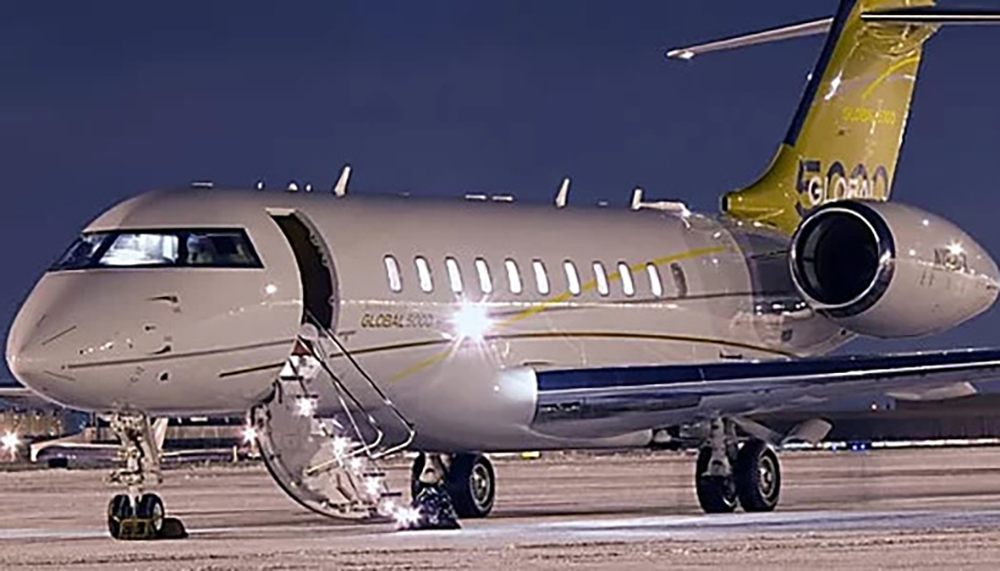Flight Attendant Jobs on Private Jets: A Luxury Aviation Career
Working as a flight attendant on private jets offers a distinct slice of aviation life: smaller crews, personalized service, and a close-up view of luxury travel. This role blends hospitality, safety, and discretion while requiring flexibility and strong interpersonal skills. Whether you’re transitioning from commercial airlines or starting fresh, understanding what differentiates private jet positions helps you evaluate whether this aviation career aligns with your professional goals and lifestyle.

What does a flight attendant on a private jet do?
A private jet flight attendant handles passenger service, safety procedures, and aircraft care in an intimate, high-expectation setting. Duties include pre-flight provisioning, custom meal and beverage preparation, cabin presentation, and responding to bespoke passenger requests. Safety responsibilities—briefings, emergency equipment checks, and coordination with the flight crew—remain core. Unlike commercial cabins, service is highly personalized and often requires discretion, cultural awareness, and the ability to anticipate needs for high-net-worth clients and VIPs.
How does private jet service differ from commercial aviation?
Private jet service emphasizes privacy, tailored experiences, and flexible schedules. Flights can originate from smaller airports and often bypass busy terminals, which changes typical passenger handling and logistics. Cabin size and crew complement vary widely, meaning duties can span from elite catering selection to light maintenance checks. Because passenger counts are small, attention to detail in presentation and service quality is magnified. Flight attendants must be adaptable, comfortable with irregular hours, and skilled in delivering both luxury hospitality and aviation-standard safety.
What skills build a sustainable aviation career?
Key skills include exceptional customer service, strong communication, and professionalism under pressure. Aviation-specific competencies—first aid, emergency procedures, and understanding of aircraft systems—are essential. Hospitality skills such as fine dining service, wine knowledge, and cultural sensitivity are highly valued in luxury travel. Language skills and familiarity with international travel protocols can expand job opportunities. Employers also look for discretion, a polished appearance, and the ability to work independently, since private jet crews are small and responsibilities are broad.
Can a flight attendant work in luxury travel long-term?
Yes, many flight attendants build long-term careers in luxury aviation, progressing to senior cabin lead roles, purser positions, or into ground-based client service and operations. Consistency, discretion, and strong client rapport can lead to repeat charters or dedicated staffing for a single high-profile client or owner-operator. However, lifestyle factors such as irregular hours, time away from home, and the need to maintain certifications can influence longevity. Continuous training and networking within the private jet sector help sustain career growth in this niche of aviation.
How to start a flight attendant career in your area?
Begin by researching local private jet operators, charter companies, and fractional ownership firms that hire cabin crew. Obtain required certifications such as CPR/first aid and any country-specific aviation qualifications. Highlight hospitality experience on resumes and prepare for interviews that test problem-solving and confidentiality. Short courses in fine dining service or language training can boost prospects. Applying through staffing agencies specializing in luxury aviation or attending industry networking events often uncovers openings that aren’t publicly advertised.
A number of well-known companies operate in the private jet and fractional ownership space; here are examples of employers and what they typically offer cabin crew. Many of these providers hire flight attendants for both charter and fractional programs, with hiring practices and job requirements that vary by region and fleet.
| Provider Name | Services Offered | Key Features/Benefits |
|---|---|---|
| NetJets | Fractional ownership and private jet charters | Large fleet, structured training programs, global operations |
| Flexjet | Fractional and leasing services | Fleet variety, membership options, professional crew support |
| VistaJet | Global membership-based charter services | High-end service standards, long-range international routes |
| Wheels Up | Membership and charter flights | Access to a networked fleet, varied membership tiers |
| XO | On-demand charters and memberships | App-based booking, mix of charter and shared flights |
These providers represent typical employers in private jet aviation but hiring needs, benefits, and fleet composition change over time. Confirm current opportunities and requirements directly with each operator.
Conclusion
A flight attendant role on private jets is a distinctive aviation career that combines safety expertise with high-level hospitality and discretion. It suits professionals who enjoy personalized service, varied schedules, and close client interaction. Building relevant certifications, hospitality skills, and industry connections will strengthen your candidacy. As private aviation continues to serve a clientele that values privacy and comfort, opportunities for skilled cabin crew remain a specialized and rewarding pathway within the broader aviation sector.






